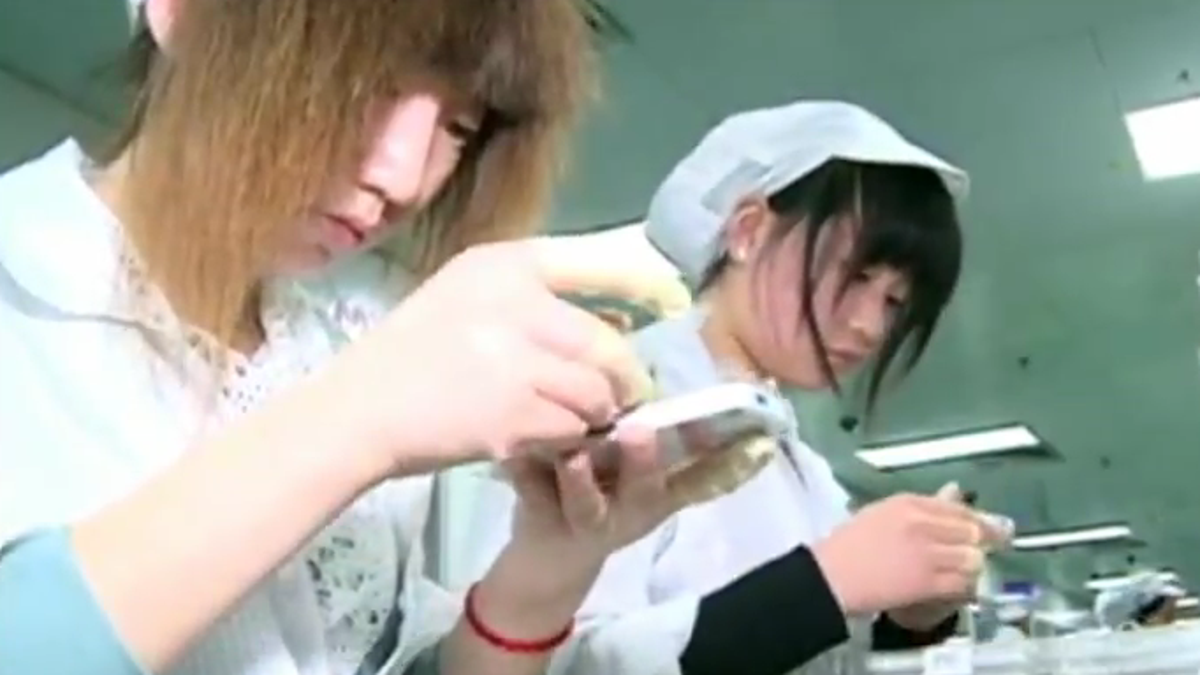Could a Foxconn factory worker ever afford an iPhone?
The assembly lines where workers make iPhones and other devices can be traced back to Henry Ford, but his ideas about employee compensation have left the building.

The workers who produce iPhones have the ability to pay for one just like anyone else, so long as they don't have even the slightest interest in buying anything else over a six-month period.
Recent reporting from ABC's Nightline revealed some of the basic numbers that define the simple and monotonous existence of the Foxconn factory line workers who assemble Apple's iPhones and iPads, Amazon's Kindles, and a slew of other devices from all sorts of recognizable brand names. Here's the number that sticks in my head, though: $1.78--that's how much one of those workers makes every hour he or she is on the line.
New workers at Foxconn plants used to start off making as little as $214 a month, but all the recent media attention and pressure led Foxconn to give its workers a raise, so many junior employees in the factories are now starting at $290 a month. Remarkably--especially when we consider that the cost of living in Shanghai and Beijing is on par with New York City--this amount is in compliance with China's minimum wage laws.
That amount is low enough that the worker won't have to worry about paying income taxes, but Foxconn does deduct as much as $72 for the cramped dorm room and meals provided by the company.
So that brings us back down to a take-home amount of just more than $200 a month, a significant chunk of which is probably being sent home to a worker's family in a rural village somewhere.
So if Foxconn workers actually aspired to own one of the products they dedicate their lives to producing in the bygone spirit of Henry Ford--who ensured his factory workers were paid enough to buy the cars they were making--could they?
Sure, but it would mean cutting off grandma back in the village, saving up all their earnings for about half a year, and then having to come up with more money to pay for minutes. Of course, a worker could get a subsidized phone with a Chinese carrier contract, but as we in the U.S. know, that deal doesn't save much money in the long run.
In reality, the idea that a Foxconn worker might ever purchase one of the products he or she makes is a silly one. The deck is so stacked against the workers that they can scarcely even afford to leave the huge Foxconn campuses where they live and work--the largest one in Shenzhen sits just over a river from Hong Kong, another of the world's most expensive cities, which drives up the cost of living around the factory complex.
But it's not fair to just hate on Foxconn, either. After all, there's no shortage of demand for the pittances their workers are paid to work long hours in questionable conditions. It's not uncommon for hundreds or thousands of people to line up for job openings.
There's a really long and complicated conversation to be had about the staggering disparity between China's richer, more modern east coast cities and the poverty still found in the interior, where the Foxconn factory workers hail from. But we'll let the TED folks sort that one out later. It's just too bad Foxconn doesn't have its own Henry Ford. They sure have a strange definition of socialism in China.

